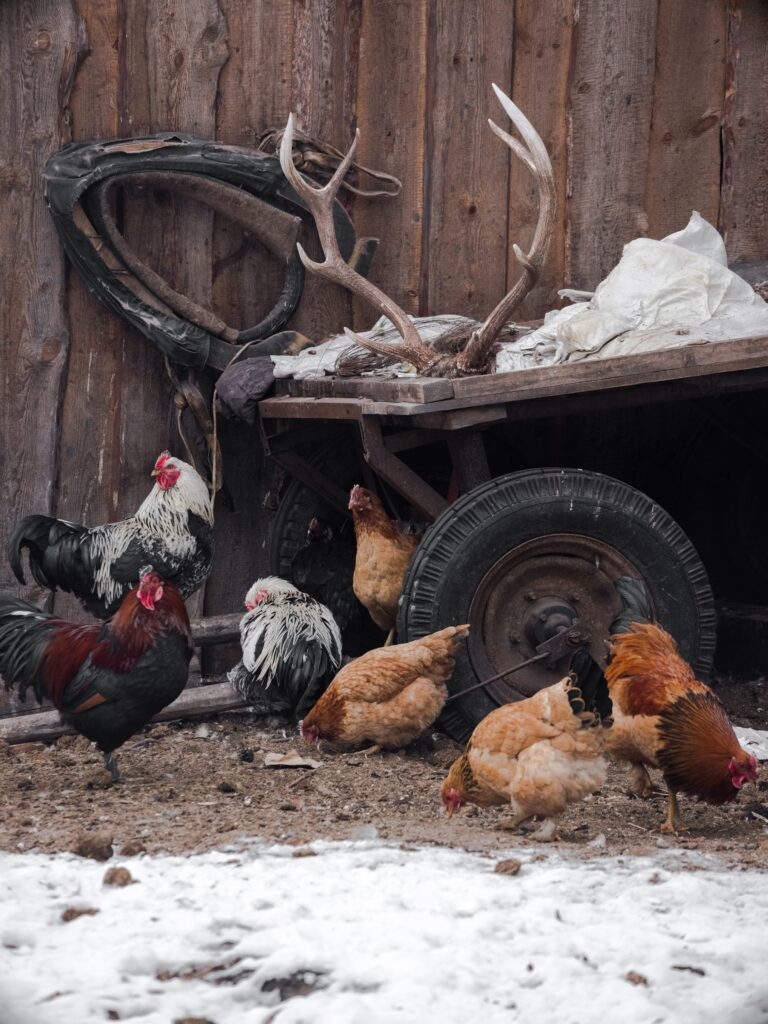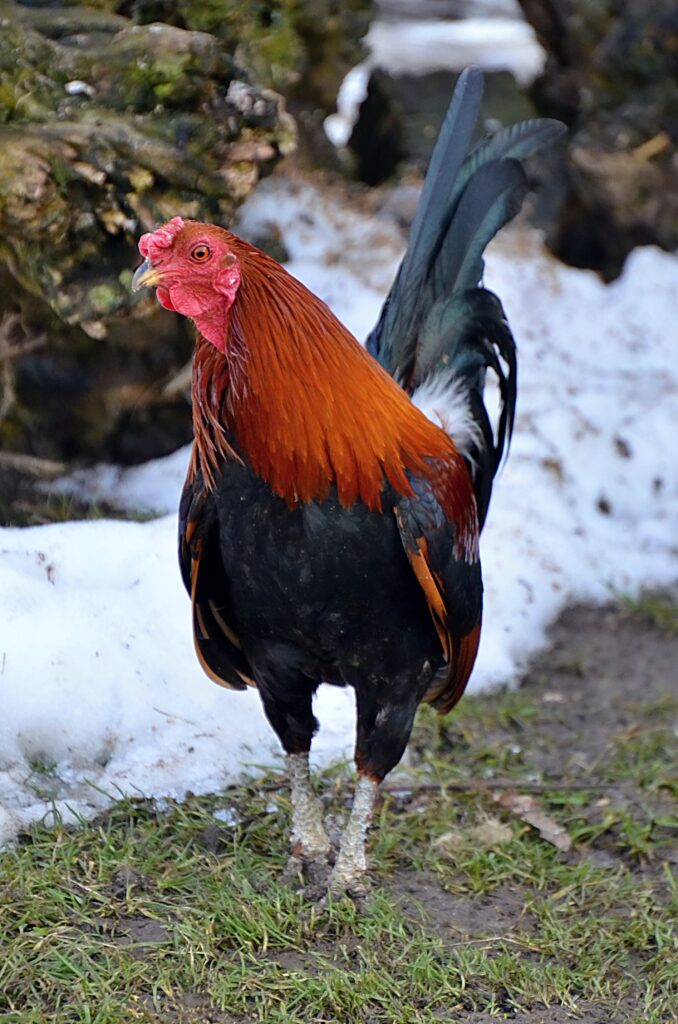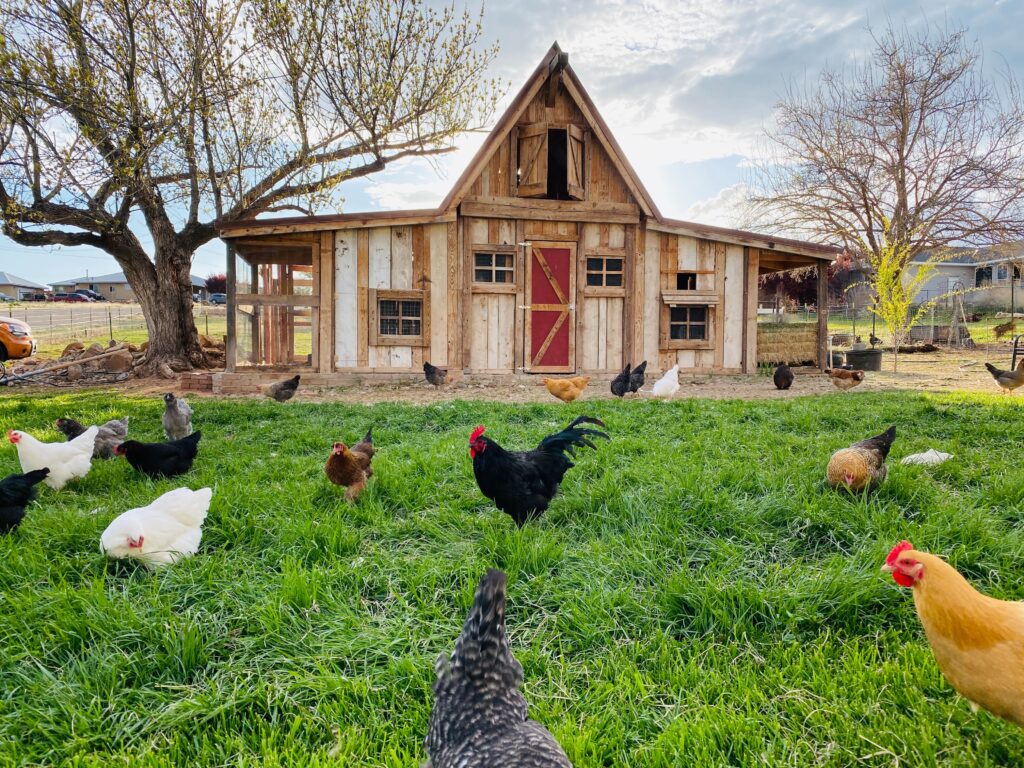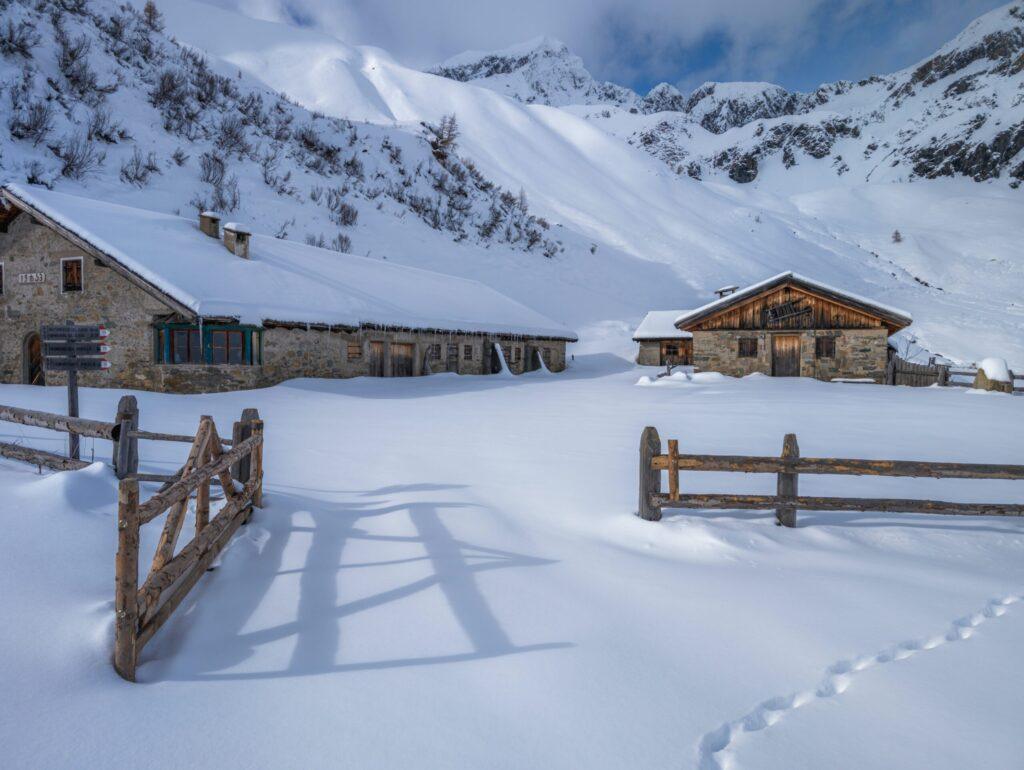Although chickens were originally jungle fowl, they have adapted amazingly to many climates and conditions. Here I have answered your questions about cold weather and chickens. Enjoy my best tips for caring for your flock this winter!

I’ve noticed the days getting shorter. How should I prepare for cold weather and chickens?
As far as your chickens are concerned there is really nothing you need to do as cold weather approaches. You will only really need to prepare for weather that is consistently below 32°F during the day. When this happens the egg-production may take a dive if your hens spend the majority of their day indoors.
It is likely that your chickens have recently gone through molt. This is a complete shedding and replacement of your chicken’s feathers in preparation for the colder temperatures. The Creator has designed this to take place as part of His provision for poultry in cold weather. What an amazing design!
Special concern: Water
If the daytime highs in your region are below freezing your chicken watering containers will freeze. Take care not to overfill as expansion of freezing water will cause them to swell and crack. Consider using rubber buckets, pans, and even galvanized metal containers for watering if available.
If you are able to keep the water inside the coop this is often not an issue. Just be sure spills are not taking place as damp bedding in winter is uncomfortable and possibly dangerous. If the water inside the coop is becoming frozen you can bring the chickens fresh warm water daily and remove the frozen water from yesterday as you leave. In some colder areas it may be necessary to do this twice daily.
Dehydration is still a concern for cold weather and chickens. Do not rely on snow to keep your chickens well-watered as they would definitely prefer to consume their water in a liquid vs. frozen state. Providing warm water is not only comforting for them, it allows the water to remain liquid a few more hours before it freezes solid again.

Special concern: Housing
Do your best to allow your chickens access to the outdoors even in the coldest weather. If they want to go out, they will. This affords them some much-needed exercise which enables their bodies to warm up. Also, your chickens are less likely to fight and peck each other out of boredom if they are not cooped up together constantly.
Many chickens enjoy being outside even when there is snow on the ground. You will see them enjoying their usual scratching and pecking behavior, moving the snow aside to discover the smallest bit of nourishment. Please avoid any temptation to heat their coop and keep them inside. This is not good for their health and is an unnecessary risk.
While not heated, many northern flocks enjoy spending their winters in a greenhouse-type environment that is unused. This covered area heats up during the day via the sun’s rays and maintains that warmth overnight somewhat as the chickens and their water are both inside. They can often perform bed-tilling and fertilizing duties which also benefits the soil in these out-of-season growing spaces.

Special concern: Feed
You may find that your chickens are hungrier in the winter and are consuming more feed. This is due to several factors. First, they are often expending additional energy to keep warm. Secondly, their is often much less nutrition available if their usual free-range areas have gone dormant or are under inches or feet of snow.
You have several options during this time to supplement their usual grains and scratch routine. Most chickens would love a simple porridge of warm, cooked oatmeal on those really cold mornings. If you like it, why wouldn’t they.
If you are in the habit of visiting your coop in the late afternoon or early evening, you could also offer some warm, soaked whole corn, or even just some cracked corn. This high-carb treat really revs up their metabolism, fills their crop, and helps keep your chickens warmer overnight.
Lastly, are you fermenting your chicken feed? Fermented chicken feed has literally been shown to keep your hens fuller longer, increase egg density and nutrition, and make the feed itself more nutritious. This is due to the fermentation process’ ability to multiply vitamin and nutrient content of the feed.
If you decide not to ferment their feed, chickens will usually enjoy having their feed served as a warm, wet mash during winter. If you can keep them eating adequately during winter, hens will maintain egg-production. This is the main benefit if chicken-keeping, right? Never let your flock run out of feed during the winter months.

General Cold Weather and Chickens Welfare Tips
Be sure your chicken coop has adequate bedding. In winter it is usually necessary to keep the bedding layer even thicker than in the warmer months, There are two main reasons for this. First, your chickens are likely spending a lot more time in their coop. If so, they are also doing a lot more dropping in there! Second, they really can benefit from the added insulation the thicker bedding provides during those cold winter days and nights.
Be sure to maintain adequate ventilation in your coop. Resist the urge to seal off all drafts. Drafts are not harmful and do not cause illness as was once commonly taught. A build-up of toxic air from the concentration of your chicken’s waste will, however, cause illness. Bedding levels and ventilation should be checked often throughout the winter months.

Bringing it all home to roost.
As with most beings, a chicken’s needs in winter do not stray widely from their needs during the rest of the year. Keeping and raising a healthy flock will always come down to meeting the basics of food, water, and shelter. When you do your best to provide for and address these needs your chickens will thrive no matter the season!
Chicken keeping is a truly rewarding pursuit. Please share in the comments below any challenges you are having as well as any hacks you have discovered for cold weather and chickens on your homestead. We’d love to hear them!
